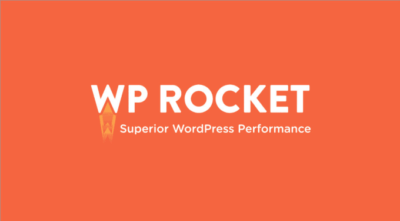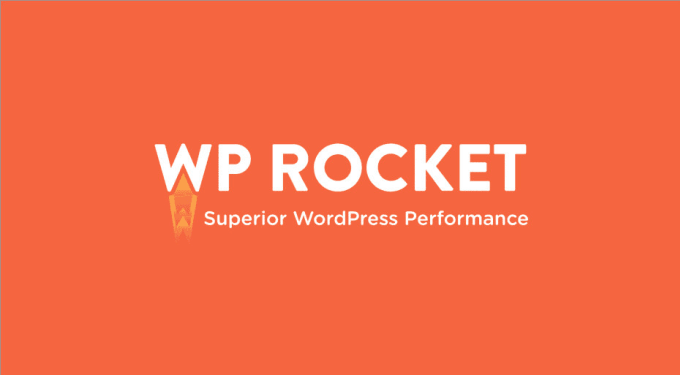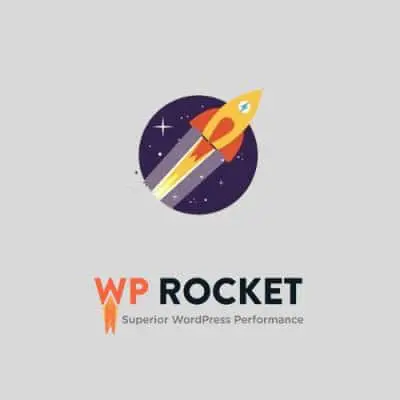
WP Rocket: Supercharge Your Website with WP Rocket
So, what does WP Rocket do exactly? Well, it works behind the scenes to optimize your website’s performance, making it load faster than a hot knife through butter. With a few clicks, it handles everything from page caching to minifying your CSS and JavaScript files, all while taking the headache out of technical jargon. It’s like having an expert mechanic fine-tune your site while you sit back and relax.
But let’s keep it real—speed isn’t just a luxury; it’s a necessity. Did you know that a one-second delay in loading time can cause you to lose 7% of your conversions? Ouch! With WP Rocket, those worries melt away. Just imagine the difference it makes when your potential customers don’t have to tap their fingers impatiently while waiting for your page to load.
What’s even cooler is its user-friendly setup. You don’t need to be a tech whiz to make it work. Simply install the plugin, and it’s ready to rock. WP Rocket gives you access to built-in features that are often found in pricier solutions, but without the complexity that leaves most users scratching their heads. Plus, regular updates ensure that your site stays optimized as web standards evolve.
Key Benefits of Using WP Rocket for Site Speed
First off, caching is the name of the game. WP Rocket makes it super simple to implement caching, which is like storing your cheese in a fridge—ensuring it stays fresh and ready for snacking. By saving copies of your pages, WP Rocket reduces the load on your server, allowing those hungry visitors to enjoy your content without the dreaded spinning wheel.
Then there’s the lazy loading feature. Picture this: you’re scrolling through a blog post, and the images only load as you get closer to them. That’s lazily loading, and it means less data is being used upfront. With fewer resources being called upon initially, your site feels snappier and more responsive, enhancing user experience.
Another perk? The ability to optimize your database. Think of your database like a messy garage—full of old, forgotten stuff that takes up space. WP Rocket cleans up that clutter, optimizing your database to ensure it only holds what’s necessary. Voila, more room for your site to breathe and operate smoothly!
And let’s not overlook compatibility. WP Rocket plays nice with almost any plugin, allowing you to dress your site up in the latest features without worrying about speed backups. It’s like having a flexible wardrobe that still fits perfectly, no matter what you throw at it.
So, if you’re looking to kick your site’s speed into high gear and make those visitors stick around longer, WP Rocket is the trusty sidekick you didn’t know you needed.
How to Configure WP Rocket for Optimal Performance
First off, after you install WP Rocket, you’ll be greeted with a user-friendly dashboard. It’s like walking into a spaceship control panel where everything is at your fingertips. Start by enabling the caching options; this is the bread and butter of speeding things up. Caching stores a static version of your site, so visitors don’t have to wait for your server to generate pages on the fly. Just a few clicks, and you’re already halfway there!

Don’t overlook media optimization either. Enable lazy loading for images and videos – this means they only load when viewers scroll to them. It’s like having an amazing buffet that only unveils dishes as you approach.
Also, consider integrating a Content Delivery Network (CDN). This spreads your site’s data across multiple servers worldwide, so no matter where your visitors are, your site can reach them like a lightning bolt. It’s like having a good friend who can deliver messages quickly no matter how far apart you are.
Finally, be sure to leverage the database optimization tools in WP Rocket. Regular cleanups will keep your site running smoothly, just like cleaning out the clutter in your room makes it easier to navigate. So roll up your sleeves and dive into WP Rocket – your site’s performance will thank you!
WP Rocket Cache Settings Explained
Imagine your site as a bustling café. When customers (users) walk in, you don’t want them to wait forever for their lattes (content). That’s where WP Rocket comes in, serving up cached versions of your website. The goal? Speed things up! The cache settings allow you to store a snappy version of your pages so visitors can access them without the usual wait.
So, what can you tweak? First, there’s the basic cache settings. With just a flick of a switch, you can enable caching for mobile devices and user cache for logged-in users. Think of it as creating a special menu for your regulars—every click gets them their usual in record time.
Then comes file optimization. When you activate minification and concatenation, it’s like cleaning out that cluttered drawer in your café. You’re getting rid of unnecessary items (code) and bundling what you need, which reduces the load time significantly.
Don’t forget about browser caching! This feature is akin to offering punch cards to your frequent visitors—letting them store some items in their “memory,” so they don’t need to reorder everything on each visit.

The Impact of WP Rocket on SEO and User Experience
Imagine your website as a busy restaurant. If customers are waiting too long for their meals, they’ll leave for a quicker option down the street. The same applies to your site; if it takes too long to load, visitors will bounce. WP Rocket acts as your head chef, streamlining operations to serve up content faster. By utilizing features like page caching, lazy loading, and file minification, it makes sure everything runs smoothly and swiftly.
Now, let’s talk about SEO. Google loves fast websites. A speedy site not only delights your visitors but also ranks higher in search results. WP Rocket helps you achieve that by reducing your page load times, making it easier for search engine bots to crawl and index your site. Consider it an express lane for Google’s algorithm, ensuring your content gets the attention it deserves.
User experience is another biggie. When your site runs like greased lightning, users stay engaged longer. Think of it as a captivating story—if the plot moves at a snail’s pace, who’s going to stick around? With WP Rocket, you’re creating an enticing narrative that keeps your audience hooked, encouraging them to explore more pages and interact with your content.
In the grand scheme, using WP Rocket isn’t just about speed; it’s about crafting an inviting digital environment where users feel welcome and engaged, all while boosting your SEO game. So why wait? Embrace the power of WP Rocket and watch your website soar!
WP Rocket Alternatives: How Do They Compare?
First off, there’s W3 Total Cache. Imagine it as that overachiever in school—always bringing home top grades. This plugin is loaded with features like CDN integration and minification. It’s powerful and, best of all, free! However, you might need a bit of a manual to navigate through its settings, which can feel like trying to solve a Rubik’s Cube blindfolded.
Then we have WP Super Cache, the user-friendly buddy that doesn’t break a sweat. It’s designed for those who want a simple install and are ready to hit the ground running. With straightforward settings, it’s perfect for newcomers. But don’t let its simplicity fool you; it still packs a punch when it comes to caching your content effectively.
If you’re willing to dip your toes into the premium waters, consider Cache Enabler. This lightweight plugin prioritizes speed and performance without drowning you in options. It’s akin to a perfectly brewed cup of coffee—simple, yet it gives you that necessary kick. But remember, it may not offer the depth some advanced users crave.
Lastly, there’s Autoptimize. Think of it as your digital personal trainer, trimming the excess fat from your site’s code and optimizing scripts. It may leave you wondering how you lived without it, especially if you like a quick setup that yields immediate results.
So, whether you’re after budget-friendliness, simplicity, or robust features, these WP Rocket alternatives are certainly worth a glance. The best part? There’s no one-size-fits-all—it’s about finding the perfect fit for your WordPress journey!
Frequently Asked Questions
What Features Does WP Rocket Offer?
WP Rocket enhances website performance through features like caching, file minification, lazy loading, and database optimization. It automates critical speed improvements, ensuring faster load times and improved user experience without requiring technical expertise.
What is WP Rocket and How Does It Work?
This is a performance optimization plugin for WordPress that enhances website speed and efficiency. It simplifies caching, minimizes file sizes, and reduces server requests, leading to faster load times. By implementing best practices for performance, it helps improve user experience and SEO rankings.
Is WP Rocket Compatible with All Hosting Providers?
WP Rocket is designed to be compatible with a wide range of hosting providers, but optimal performance may depend on specific server configurations. It’s recommended to check compatibility with your hosting provider and ensure any required settings or configurations are in place for best results.
How Much Improvement Can I Expect in Website Speed?
Website speed improvement depends on various factors, including the current performance, optimization techniques applied, and hosting services used. Generally, users can expect noticeable enhancements after implementing strategies like image compression, caching, and code minification. On average, these optimizations can lead to a speed increase of 50% or more, significantly improving user experience and search engine ranking.
How to Install and Set Up WP Rocket?
To install and set up WP Rocket, first purchase and download the plugin from the official website. Next, log in to your WordPress dashboard, navigate to ‘Plugins’ > ‘Add New’, and upload the WP Rocket zip file. Once installed, activate the plugin. After activation, access the WP Rocket settings from the dashboard to configure options like caching, file optimization, and CDN. Save your changes to improve your site’s performance.














